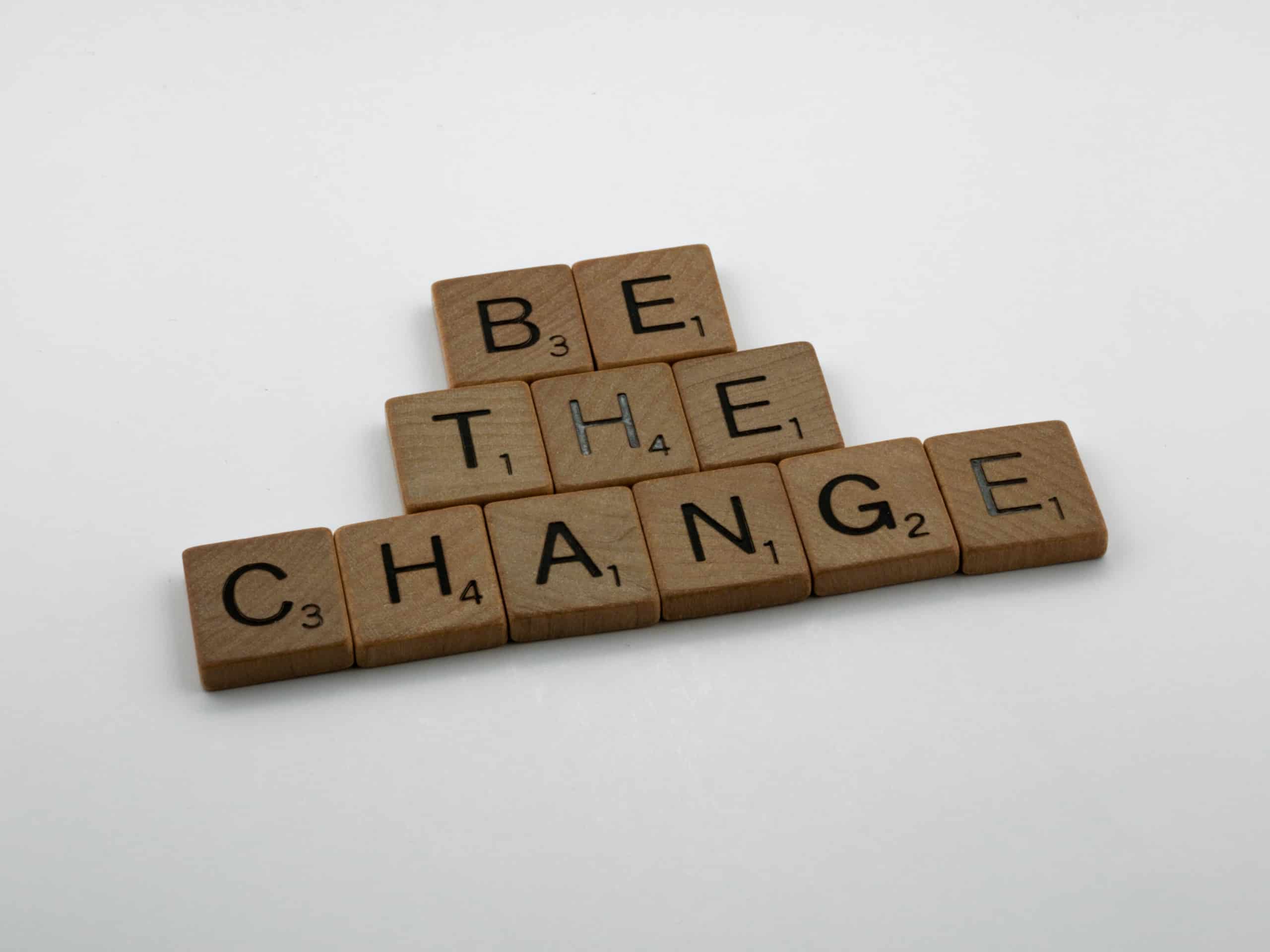[ad_1]
What’s Unconditional Accountability?
Let me ask you… If I counsel taking unconditional accountability in all points of your life, what ideas and emotions come up for you?
Many people get defensive at this concept. Certain, we’re chargeable for loads of issues. However… unconditionally accountable? No means! What about different individuals? World occasions? Visitors? The climate? Viruses?
That’s a totally comprehensible and human response. And, I’m not suggesting you’re taking accountability for any of that. I’m suggesting you settle for unconditional accountability for your response and intention, in each state of affairs.
On this article, we’ll discover what unconditional accountability in management and life truly seems like, together with:
What’s Unconditional Accountability?
Unconditional accountability means selecting to be a participant moderately than a sufferer (or rescuer or persecutor). It means getting your self firmly within the CEO seat of your personal life.
For many people, the road between accountability and blame has develop into skewed. It’s both the best way we have been raised, the kind of work environments we’ve been uncovered to, or each. Once we’re mentioned to be chargeable for one thing, the underlying which means is that we’re at fault. We’re responsible if, and when, issues go flawed.
I need you to throw that definition out the window. It serves nobody; least of all you.
Severely. Visualize your self throwing it out. Write it down on paper and slam dunk it right into a recycling bin. Burn it if it feels proper.
The concept accountability means you’re at fault for issues outdoors your management is, frankly, BS.
So… What does unconditional accountability truly imply?
It means taking 100% accountability for:
- Your intentions
- What you say and do
- The way you reply to what others say and do
- The way you reply to circumstances round you
Sounds easy, however not all the time straightforward to place into observe.
Let’s have a look at an instance:
Think about a pacesetter of a gross sales workforce. The workforce had a gross sales goal for the quarter, and the goal was missed. Everyone labored onerous, however lots of issues occurred throughout the quarter that impacted the workforce’s means to succeed.
In a sufferer mindset (i.e. not training unconditional accountability) our chief may reply like this:
I attempted, but it surely was out of my fingers. There have been large modifications out there, lots of our repeat shoppers made cutbacks, certainly one of our greatest gross sales reps went on sick go away… How might I be anticipated to satisfy targets beneath these circumstances??
All of these circumstances could also be true, however by taking a sufferer stance, nobody is ready to transfer ahead. Our chief is caught on what they can’t management as a substitute of searching for alternatives to take management.
In a participant mindset, taking unconditional accountability as a conscious leader, our chief would look for the “fertilizer” within the state of affairs; for the way they might use it to develop and transfer ahead. They might additionally observe self-compassion, recognizing that missteps are merely human. Which may sound like:
There have been 3 main setbacks this quarter. The market shifted, repeat clients made cutbacks, and certainly one of our greatest reps went on sick go away. These circumstances have been out of my management, however primarily based on what I’ve realized since, I can see some alternatives that I’d seize on in the sort of state of affairs. For starters, I’d direct assets to market evaluation, or look into hiring an outdoor workforce for steering available on the market shifts. That will assist with any lack of clients as nicely. I’d additionally look into different financing choices to retain clients. Relating to the lack of a gross sales rep, I’d step in to fill that hole myself, or search assist from one other workforce. I’d increase these points earlier, in order that even when our goal nonetheless isn’t achievable, there can be advance discover.
In that second state of affairs, our chief is working to deal with what’s inside their management to take unconditional accountability for their response to what comes up. There’s no sense in taking the blame for what the Universe throws at us. We have now no management over that! The accountability falls on our response, and we have now to grab that. Unconditionally.
Sufferer and Rescuer Modes as Security Nets
Gamers deal with what they will management. Somebody caught in sufferer mode solely pays consideration to what they will’t management. Somebody in rescue mode solely pays consideration to how they’re “wanted” by others.
The Covid pandemic is rife with examples of this. None of us had any management over the virus or what got here with it: the financial crash, masks mandates, curfews, service shutdowns, job losses, and a lot extra. On high of that, a battle has damaged out, the continuing assault on physique autonomy has heightened, new viral outbreaks are popping up… A lot is continually occurring outdoors our management. There’s no disgrace in desirous to throw up your fingers and say, “I’m out. I can’t do that anymore.”
In Acutely aware Enterprise, Kofman explores the “advantages” of victimhood and the way sliding into the position of sufferer protects us from blame, and protects our picture. As a company and management coach, I’ve come throughout this tendency a number of occasions. And I get it. Many company cultures truly domesticate victimhood by making it unsafe to make errors or converse up. It’s undoubtedly tougher (although not inconceivable) to step right into a participant position in that kind of surroundings.
However, there’s one other “profit” I’ve been seeing an increasing number of. Victimhood can even really feel like a tender touchdown for people who find themselves exhausted by the state of the world. They’re burnt out by the fixed stream of terrible information and giving into victimhood lets them put down that horrible weight.
For individuals who slide into the position of rescuer, focusing outwardly can deliver a false sense of management and defend them from having to face their interior fears and worries.
That is so deeply human. Once we’re bodily, emotionally, mentally, spiritually exhausted, these security nets can really feel like the right place to relaxation.
Nevertheless, these security nets erode our well-being over time, and put us at larger threat of burnout (or going even deeper into burnout if we’re already there).
Unconditional accountability is a type of self care. It’s a observe that retains you centered in your objective, values and path, so that you simply don’t get sucked into the chaos and uncertainty of the exterior world.
The 6 Rules of Unconditional Accountability
You should take 100% accountability for:
- Your well-being.
All of it begins with you. Sure, which means taking full accountability on your intentions and responses. It additionally means you might have a accountability to maintain your self! Ask your self what you want within the second. What’s your physique telling you? What ideas and emotions are developing for you? Are you getting sufficient sleep? Consuming nicely? Taking ownership of your time? Advocating for your self? Taking good care of all areas of your life?
Once you lead others, it’s SO vital to place your well-being first. It’s placing by yourself oxygen masks, filling your personal cup, or no matter analogy resonates with you. You’ve gotten a accountability – unconditionally – to make sure your power shops are adequately protected and replenished. - Your intentions.
If you end up clear in your intentions – what you need to create – every step you’re taking can be aligned together with your best good.
Ask your self, “What’s my intention?” Think about your huge image imaginative and prescient and core values. Ask your self what steps you’ll be able to take, within the present circumstances, which might be aligned together with your values and convey you nearer to that imaginative and prescient.
As you progress ahead and encounter extra exterior circumstances, hold turning again to your interior intentions for steering. Hold asking, “What’s my intention and the way do I deliver that ahead?”
- Your response.
You might have heard of the “Sure, and” improv method. No matter comes up throughout a scene, actors should say sure to it, and resolve what comes subsequent as a way to hold issues transferring.
When a problem arises, we will battle in opposition to it, run from it, or create from it by saying “Sure, and…” Acknowledge the problem. Settle for what’s. That’s the “sure.” Your “and” is the way you select to reply; the way you select to maintain the present going.
This might sound like, “Sure, there have been market shifts, and listed below are the avenues we will discover to mitigate that.” “Sure, we’ve misplaced a workforce member, and we nonetheless have a workforce of wonderful individuals who can step up, and might name on exterior assist so our workforce doesn’t burn out.” “Sure, a few of our clients made cutbacks, and we will get artistic in maintaining them on board.”
Settle for what’s and take full accountability for what you do subsequent.
 Your understanding of accountability.
Your understanding of accountability.
It’s actually frequent to equate accountability with blame. Take accountability for shifting that inside your self. An effective way is to reframe it as “response-ability”.
The guts of unconditional accountability is that you simply all the time have the power to reply in your personal means. It’s one of many few issues that’s all the time inside your management, however it’s a must to make the aware option to embrace it.
Shifting your understanding on this means may be particularly useful for those who – and/or the individuals you lead – discover the concept of accountability brings up emotions of guilt, disgrace or defensiveness. By reframing it as response-ability, you’ll be able to bypass these limiting and completely unhelpful ideas, and redirect the total power of your power to the place you’ll be able to have essentially the most impression: your means to reply.
- Your self-worth.
You can not tie your self-worth to outcomes. That is what retains individuals caught in the established order. They give thought to what may occur, what others may suppose or say, and so they really feel their self-worth diminish. They freeze and do nothing, or stick with “the way it’s all the time been finished.”
It might be nice if everybody on the earth stopped tying value to outcomes. In the event that they valued the entire individual merely for being human. If all of us understood that value is inherent and might’t be taken away.
Till that point comes – and to do your half in bringing that world ahead – you need to take unconditional accountability on your personal sense of self-worth.
This may be onerous for leaders as we often are held accountable for outcomes. However, accountability isn’t the identical as value.
Your value comes from being human. That’s it. You might be worthy of respect and compassion, of being heard, taking over house, making errors, working in your progress, asking for assist… you’re worthy of all of that, no matter outcomes.
- Your impression.
Impact is deeply tied to intention. You can not management how different individuals reply to you, however you’re chargeable for the impression of your intentions and your errors.
In the event you give right into a second of anger and converse sharply to somebody, they aren’t going to be glad about it. They could reply with anger, or harm, or perhaps with neutrality, however from that time on, they not belief you, have interaction with you, or search to work with you. You might be chargeable for the intention you delivered to that interplay, and you’re chargeable for repairing the impression.
Let’s say you had nice intentions going right into a gross sales assembly, however you unknowingly mentioned the flawed factor and the deal fell by. You might be chargeable for understanding how the error occurred, what you are able to do in another way sooner or later, and figuring out what you do subsequent.
Unconditional Accountability in Enterprise

The leaders with essentially the most positive influence in the business world by no means say “that’s not my job.” Nor do they tackle the burden of issues they will’t management. They perceive that each approaches are simply two sides of the identical coin. Each will result in unhappiness, disengagement, and ineffectiveness.
As a substitute, they totally embrace the idea of unconditional response-ability.
As a management talent, this issues each internally and externally. It issues to workers and workforce members to see leaders moving into response-ability, simply because it issues to clients and shoppers.
Ask your self how your group has stepped into response-ability over the previous 2+ years of upheaval. What has the expertise been for workers? What have your clients seen? What are you able to carry ahead and what are you able to enhance?
What Do You Achieve by Taking Unconditional Accountability?
Once you embrace this idea, you set your self up firmly because the CEO of your life. You make the aware option to take cost of how your story unfolds, as a substitute of letting your self get swept alongside within the chaos and unpredictability of the world round you. It means selecting to create YOUR world, the best way YOU need it. As a pacesetter, it additionally empowers you to point out up with true conscious leadership, which builds belief and has a optimistic impression on everybody round you.
On this means, you’ll…
- Really feel a way of possession in your life and work
- Really feel extra linked to the world round you
- Really feel extra comfy on the earth
- Have larger readability in making choices
- Be capable of decide your subsequent steps extra effectively
- Be capable of negotiate more effectively
- Develop greater self-management
- Cultivate interpersonal relationships constructed on belief, respect and a mutual need to see one another succeed
- Lead others with confidence, compassion and optimistic affect
- Be capable of set higher objectives with actionable steps
Unconditional accountability is a observe that may carry us by even essentially the most troublesome occasions, and propel us ahead in occasions of relative calm. It’s about taking full possession of your life, which solely you’ll be able to actually do.
If you need steering and assist, for your self or workforce, in embracing unconditional accountability, I invite you to connect with me.
[ad_2]

